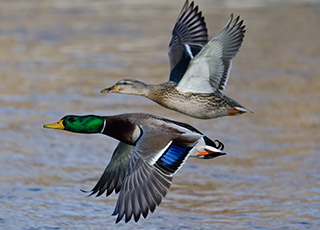Avian Influenza

Avian influenza (bird flu) mainly affects birds but as a zoonotic disease can also affect humans. At present the virus cannot transmit from human to human although there is concern that the virus could mutate to become transmissible between people and capable of causing disease in people, birds and other animals.
All falconers and raptor keepers have a duty to maintain good biosecurity and watch for any of the signs or symptoms of bird flu within your animals. If you have any concerns about the health of your birds seek prompt advice from your veterinarian.
Bird flu has a huge impact on the British economy with each confirmed case affecting movement of and preventing international trade of poultry and other birds. Because of the economic importance, Avian Influenza is a notifiable disease meaning it is a legal requirement to inform the authorities should suspicion of a case of Avian Influenza occur.
Vet advice for falconers |
Biosecurity for falconers |
DEFRA Approved Disinfectants |
Reporting suspected Avian Influenza
Avian influenza (bird flu) is a notifiable animal disease. If you suspect any type of avian influenza in poultry or captive birds you must report it immediately by calling the Defra Rural Services Helpline on 03000 200 301. In Wales, contact 0300 303 8268. In Scotland, contact your local Field Services Office. Failure to do so is an offence.
If you find dead wild waterfowl (swans, geese or ducks) or other dead wild birds, such as gulls or birds of prey, you should report them to the Defra helpline (03459 33 55 77 - please select option 7).



